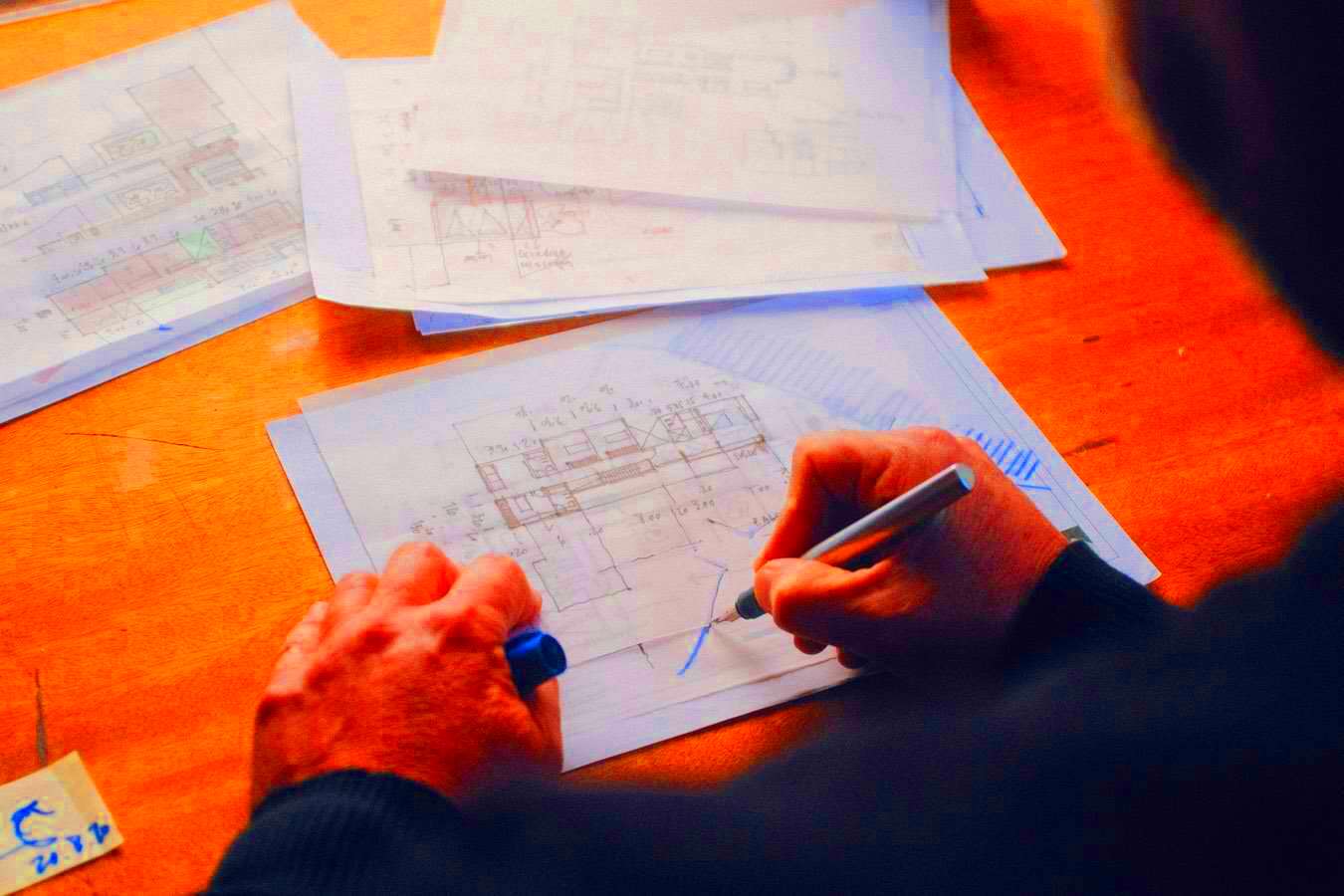Becoming a freelance architect can be an exciting and rewarding career choice. It offers flexibility, independence, and the opportunity to work on a variety of projects. Freelance architects are responsible for managing their own business while also delivering high-quality designs and plans for clients. Whether you're starting your own firm or working solo, freelancing allows you to choose the types of projects you want to take on, and even set your own schedule. However, like any freelance profession, it requires determination, excellent organizational skills, and the ability to adapt to the needs of your clients.
Skills Required to Succeed as a Freelance Architect

To succeed as a freelance architect, you'll need a mix of technical expertise, communication skills, and business knowledge. Here are some essential skills that will help you thrive in this field:
- Design Skills: A strong foundation in design principles and architectural software is crucial. Familiarity with programs like AutoCAD, Revit, and SketchUp is often required.
- Project Management: Freelance architects need to manage multiple aspects of a project, from client meetings to budgeting and scheduling.
- Problem-Solving: The ability to think critically and solve design challenges is key to creating innovative and functional spaces.
- Communication Skills: Being able to clearly communicate ideas to clients, contractors, and suppliers is vital for a smooth project flow.
- Business Acumen: As a freelancer, you’ll be responsible for managing your own finances, setting rates, and handling contracts.
Mastering these skills will help you not only deliver high-quality work but also run a successful freelance architecture business.
Also Read This: How to Write a Buyer Request on Fiverr: Insights from Quora
How to Build a Strong Portfolio as a Freelance Architect

Your portfolio is one of your most valuable tools as a freelance architect. It showcases your skills, creativity, and experience to potential clients. Here's how to build an impressive portfolio:
- Include a Variety of Projects: Whether it's residential, commercial, or public spaces, having a diverse range of projects demonstrates your versatility.
- Showcase Detailed Designs: Include high-quality images and detailed drawings of your work. Clients appreciate seeing your design process from initial sketches to final plans.
- Highlight Successful Projects: Focus on projects where you solved a unique problem or achieved a design breakthrough. Make sure to explain the challenges and how you overcame them.
- Client Testimonials: If possible, include positive feedback from clients. Their endorsements will add credibility to your work.
- Keep It Updated: Regularly update your portfolio with new work to keep it fresh and reflective of your current skills and style.
Remember, a well-organized and professional portfolio can help set you apart from other freelance architects and win you more clients.
Also Read This: How to Verify Your Fiverr Account as a US Account
Setting Your Rates and Pricing as a Freelance Architect

Setting your rates as a freelance architect can be tricky, especially when you're just starting. You want to ensure your prices reflect the quality of your work while also remaining competitive. Here are some things to consider when setting your rates:
- Experience Level: If you're new to freelancing, you might start with lower rates to build your portfolio, but as you gain experience, you can gradually increase your fees.
- Project Type: Different types of projects will require different pricing. Larger, more complex projects should naturally cost more than smaller ones.
- Location: Consider the market you're working in. Rates might vary depending on the region or country you're based in.
- Hourly vs. Project Rates: Freelance architects often choose between hourly rates or project-based rates. Hourly rates can work well for small jobs, while project rates are more common for larger, more defined projects.
- Research Competitors: Take a look at what other freelance architects in your area or niche are charging. This will help you understand the going rates and position yourself accordingly.
It’s also important to remember that your rates should cover not just your time, but also your overhead costs, including software, tools, and any other business expenses. Always be clear about your pricing structure with clients upfront to avoid misunderstandings later on.
Also Read This: Discover Gig Title Examples for Digital Marketing Success on Fiverr
Finding Clients and Projects as a Freelance Architect

Finding clients and projects as a freelance architect is one of the biggest challenges in the field. You’ll need a mix of strategies to attract clients and build long-term relationships. Here are some effective ways to find work:
- Networking: Word-of-mouth and personal referrals are powerful. Attend industry events, join online forums, or even collaborate with other architects and designers to expand your network.
- Online Platforms: Platforms like Fiverr or Upwork allow freelancers to showcase their work and connect with potential clients. Consider listing your services and creating a strong profile on these platforms.
- Social Media: Build a presence on social media platforms like Instagram, LinkedIn, and Pinterest. Post your completed projects, design ideas, and architectural inspiration to attract potential clients.
- Local Advertising: Don’t overlook traditional methods. Advertising in local newspapers, magazines, or even flyers can help you reach clients who may not be active online.
- Collaborations: Partnering with builders, interior designers, or developers can lead to steady project work. Many architects find that these collaborations are a good source of repeat business.
Finding clients takes time and persistence, but with a proactive approach, you can steadily grow your client base and build a successful freelance career.
Also Read This: Do I Own the Fiverr Work Product? Understanding Your Rights and Ownership
Managing Your Time and Workflow as a Freelance Architect
As a freelance architect, managing your time and workflow effectively is key to staying on top of your projects and meeting deadlines. It can be easy to get overwhelmed when you’re balancing multiple projects, but with the right tools and strategies, you can stay organized. Here are some tips:
- Create a Schedule: Plan your workdays ahead of time. Break down each project into manageable tasks and allocate time for each. This helps ensure you stay on track.
- Use Project Management Tools: Tools like Trello, Asana, or Monday.com can help you track tasks, deadlines, and progress on each project. They also allow you to keep communication organized with clients.
- Set Clear Deadlines: Always establish clear deadlines with your clients and stick to them. This not only keeps your workflow on track but also helps build trust with clients.
- Delegate When Necessary: If your workload is heavy, consider outsourcing certain tasks, such as 3D modeling or rendering, to other freelancers. This can help you focus on the design aspects while still delivering quality work.
- Time Blocking: Consider using time-blocking techniques to focus on specific tasks during designated hours. This prevents multitasking and helps you stay focused on one task at a time.
Managing your time well is crucial to staying productive and avoiding burnout. By staying organized and focused, you can handle multiple projects without compromising the quality of your work.
Also Read This: Is Fiverr Free for Sellers?
Challenges You Might Face as a Freelance Architect
Freelancing as an architect can offer a lot of freedom, but it also comes with its own set of challenges. Being prepared for these obstacles can help you navigate the ups and downs of your career. Here are some common challenges that freelance architects often face:
- Unpredictable Income: Unlike traditional jobs, freelancing doesn’t come with a steady paycheck. Some months might be busier than others, and there might be dry spells between projects. Managing your finances wisely and setting aside savings during busy periods can help you weather the lean months.
- Finding Clients: Attracting new clients and maintaining a steady stream of work can be difficult. It’s important to market yourself and build relationships within the industry. Networking and staying visible on online platforms can help increase your chances of finding new projects.
- Time Management: As your own boss, managing multiple projects and deadlines can be overwhelming. Balancing design work, client communication, marketing, and administrative tasks can sometimes feel like too much. Using tools and setting strict boundaries for your time can help alleviate this challenge.
- Dealing with Clients: Not all clients are easy to work with. Some might have unrealistic expectations or change their minds halfway through a project. Having clear contracts, communication, and understanding client needs upfront can help prevent misunderstandings.
- Staying Motivated: Freelancing can sometimes feel isolating, and maintaining self-discipline can be difficult when you don't have a team around you. Setting goals, establishing routines, and working from a dedicated space can help keep you on track.
While these challenges might seem daunting, with the right strategies and mindset, they can be managed effectively, allowing you to thrive as a freelance architect.
Also Read This: Which is Worse: Cancellation or Low Review Score on Fiverr?
FAQs about Freelance Architecture
If you’re considering starting a career as a freelance architect, you likely have a lot of questions. Below are some frequently asked questions that might help you get a clearer picture of what to expect:
- How much should I charge as a freelance architect? Rates vary depending on factors like experience, project complexity, and location. It's a good idea to research local market rates and consider starting with competitive but fair pricing, adjusting as you gain experience.
- Do I need a license to work as a freelance architect? Yes, most countries require architects to have a professional license. Make sure you meet local regulations and have the necessary credentials before offering your services.
- How can I build a client base? Networking, attending industry events, showcasing your work online, and leveraging freelance platforms can all help you build your client base. It’s also important to build strong relationships with clients to get repeat business and referrals.
- How do I handle contracts? Always have a formal contract in place before starting any project. This should outline the scope of work, deadlines, payment terms, and any other important details to avoid misunderstandings.
- What are the benefits of being a freelance architect? Freelancing offers flexibility, the ability to choose your own projects, and the opportunity to work from anywhere. It can be a rewarding career path for those who value independence and creativity.
By understanding the basics of freelance architecture and preparing for these common questions, you’ll be better equipped to handle your journey in this exciting field.
Conclusion: Starting Your Freelance Architecture Career
Starting a career as a freelance architect is an exciting journey that requires both technical skills and business savvy. While it comes with challenges like managing your time, finding clients, and setting your rates, it also offers significant rewards in terms of freedom, creativity, and personal fulfillment. The key to success is being prepared, staying organized, and continually refining your skills and business strategies.
Remember, building a strong portfolio, networking actively, and delivering high-quality work are essential to growing your freelance architecture career. The flexibility to choose your projects, set your schedule, and develop relationships with clients can make freelance architecture an incredibly fulfilling career choice.
If you're ready to start, take small steps toward building your brand, gaining experience, and putting yourself out there. Over time, your dedication and hard work will pay off, allowing you to create a successful and rewarding freelance architecture business.




